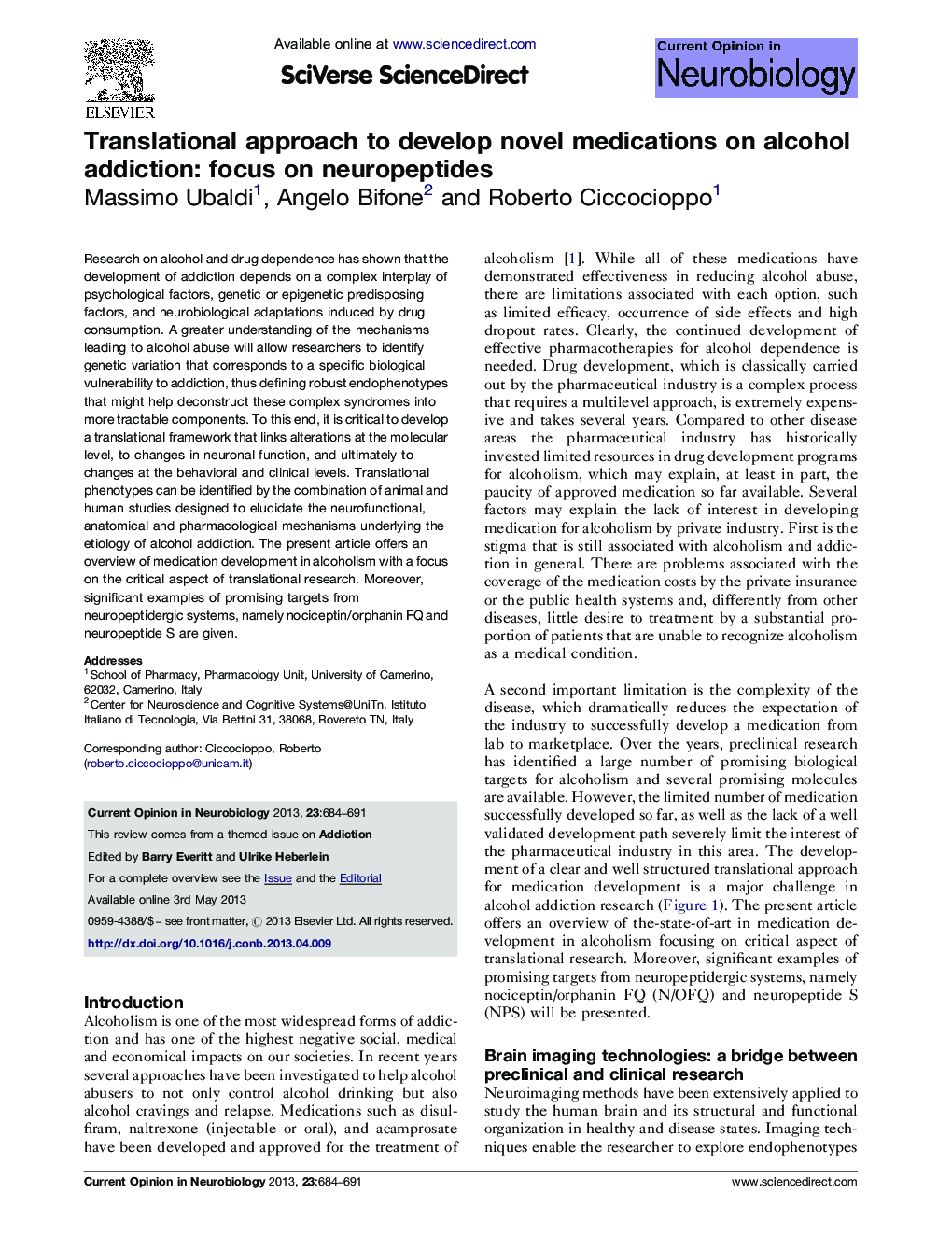| Article ID | Journal | Published Year | Pages | File Type |
|---|---|---|---|---|
| 6267143 | Current Opinion in Neurobiology | 2013 | 8 Pages |
â¢Translational medicine has a major significance in drug development on alcoholism.â¢Brain imaging techniques are fundamental in bridging between preclinical and clinical research.â¢Neuropeptidergic systems are promising for drug development in alcoholism.
Research on alcohol and drug dependence has shown that the development of addiction depends on a complex interplay of psychological factors, genetic or epigenetic predisposing factors, and neurobiological adaptations induced by drug consumption. A greater understanding of the mechanisms leading to alcohol abuse will allow researchers to identify genetic variation that corresponds to a specific biological vulnerability to addiction, thus defining robust endophenotypes that might help deconstruct these complex syndromes into more tractable components. To this end, it is critical to develop a translational framework that links alterations at the molecular level, to changes in neuronal function, and ultimately to changes at the behavioral and clinical levels. Translational phenotypes can be identified by the combination of animal and human studies designed to elucidate the neurofunctional, anatomical and pharmacological mechanisms underlying the etiology of alcohol addiction. The present article offers an overview of medication development in alcoholism with a focus on the critical aspect of translational research. Moreover, significant examples of promising targets from neuropeptidergic systems, namely nociceptin/orphanin FQ and neuropeptide S are given.
